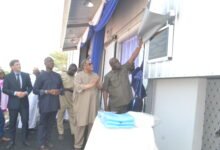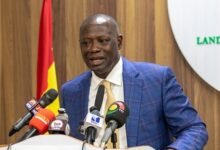
Parliament yesterday approved US$100 million for two companies to execute the supply and erection of electrical materials and equipment for electrification of 526 communities across some regions under the Self-Help Electrification Programme (SHEP).
The first contract was between the government represented by the Ministry of Energy and the TBEA HENGYANG TRANSFORMER COMPANY LIMITED for US$ 50 million to execute the project in 292 communities in the Ashanti, Central, Eastern, Brong and Ahafo regions.
The second was a contract between a local company, Tropical Cable and Conductor Limited and the government to execute the project in 234 communities in the North East, Savannah and Northern regions for an amount of US$ 50 million.
Presenting the Report to the Select Committee on Mines and Energy prior to the approval, the Chairman of the Energy Committee, Mr Emmanuel Akwasi Gyamfi said the government through the Ministry of Energy had been pursuing a National Electrification Scheme (NES) since 1990.
He explained that the objective of this pursuit was to reduce poverty, create small to medium scale industries and create jobs in the rural areas, in order to stem rural-urban migration and improve the overall socio-economic development of the nation.
Mr Gyamfi said the target of the NES, complemented by the SHEP was to extend electricity to all parts of the country over a 30-year period, adding that, “So far, 10,486 communities as at March 2019, have been connected to the national grid under the NES and SHEP since their commencement in 1990.”
He noted that the rate of access to electricity in Ghana had increased from about 15 per cent of the population at the inception of the NES to the current level of 84.98 per cent.
“In order to accelerate the attainment of the universal access to electricity, the government is implementing several electrification projects in some selected communities across the country, including the areas covered by the current contract agreement laid before the House,” he emphasised.
He said the government had committed to pay 15 per cent of the contract sum as an advance payment to the contractors to take care of mobilisation and design with the remaining 85 per cent scheduled to be paid upon submission of valid claims in respect of the supply of materials and installation.
Mr Gyamfi said the time frame for the completion of the works was 720 days which was two years from commencement of date.
By Lawrence Markwei







